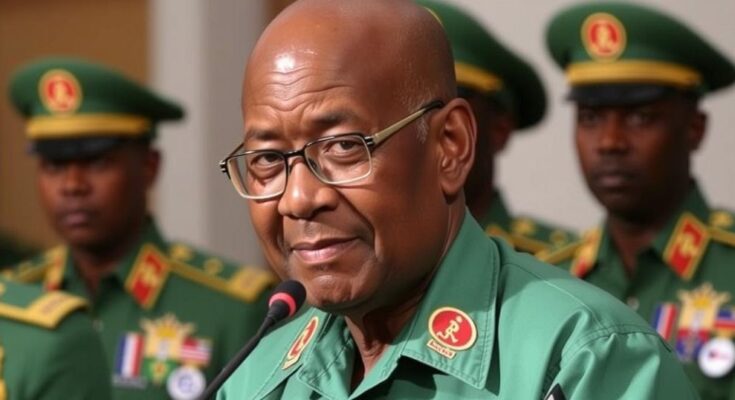Chad is holding elections for legislative, provincial, and local offices, deemed a final step toward democracy after three years of military rule. The opposition is boycotting the elections, alleging electoral fraud and manipulation. Amidst ongoing violence and media restrictions, the elections raise significant concerns regarding transparency and democratic integrity.
Chad is set to conduct legislative, provincial, and local elections, marking the final phase of a political transition following three years of military governance. However, these elections, which are critical for the nation’s democratic future, are largely boycotted by opposition parties. This boycott primarily provides an advantage to candidates supportive of Marshal Mahamat Idriss Itno, the military leader who ascended to power in 2021. Critics, including opposition figure Succes Masra, have openly condemned the electoral process, labeling it as fraudulent and marred by pre-determined outcomes.
On the eve of the elections, the Democratic Party of the Chadian People (PDPT) reported significant electoral misconduct, alleging that a substantial number of ballots had gone missing. The elections occur amid a climate fraught with violence and instability, including threats from Boko Haram and a deteriorating relationship with France following the end of a military agreement. While the government portrays these elections as a decisive step towards democracy, opposition leaders argue that the regime is increasingly authoritarian.
As polling stations open, with seven million voters expected, the absence of independent media coverage hampers public transparency, compounded by a journalists’ strike due to government restrictions. Despite the ruling party’s efforts to promote the elections, the overall environment is characterized by distrust and apprehension regarding electoral integrity. The 2021 elections followed the death of Idriss Deby Itno, who had maintained an oppressive rule for three decades. Overall, the political climate in Chad remains tumultuous, raising questions about the future of democracy in the nation.
Chad has experienced significant political turmoil following the death of long-time leader Idriss Deby Itno in 2021, which led to the ascendancy of his son, Marshal Mahamat Idriss Itno. The transition to a civilian government has faced numerous challenges, including accusations of electoral fraud, a repressive governance style, and deteriorating security conditions in the region due to jihadist threats. This context is vital for understanding the implications of the current elections, which the Chad government has framed as central to establishing democratic norms.
In conclusion, Chad’s elections represent a critical juncture in its post-military governance landscape. With the opposition parties boycotting and multiple allegations of electoral malpractice, the integrity of the political process is under scrutiny. The ruling government must navigate these complex challenges to move the nation towards genuine democratic reforms, while addressing the broader issues of security and political repression.
Original Source: www.barrons.com




